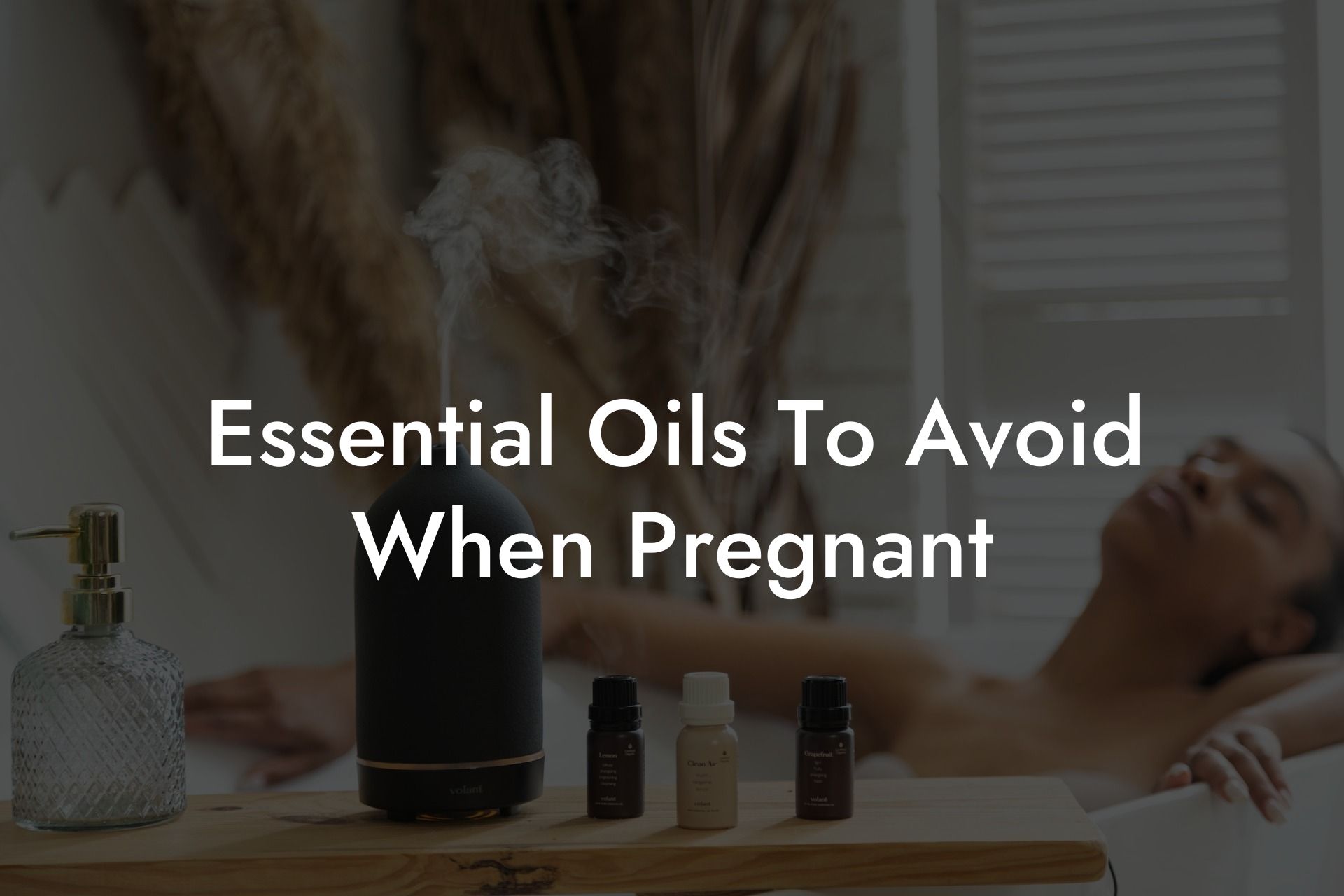Pregnancy can bring about a lot of changes in a woman’s body, and it is a time when every expectant mother wants to take extra care of herself to ensure the well-being of her baby. While essential oils offer numerous benefits, some of them should be avoided during pregnancy. In this article, we will delve into the world of essential oils and explore the ones that should be avoided during pregnancy, focusing on their potential risks and safety concerns.
Table of Contents
- Why are some essential oils not safe during pregnancy?
- 1. Rosemary (Rosmarinus officinalis)
- 2. Clary Sage (Salvia sclarea)
- 3. Basil (Ocimum basilicum)
- 4. Juniper Berry (Juniperus communis)
- 5. Peppermint (Mentha piperita)
- 6. Thyme (Thymus vulgaris)
- 7. Aniseed (Pimpinella anisum)
- Oshu Oils recommends avoiding the following essential oils during pregnancy:
- Safe alternatives for essential oils during pregnancy
Why are some essential oils not safe during pregnancy?
Essential oils consist of powerful and concentrated plant compounds. Due to their potency, certain essential oils can have adverse effects on a pregnant woman and her unborn baby. Some oils can stimulate the uterus, causing contractions, while others may disrupt hormones, leading to potential complications. It is crucial to be cautious when selecting essential oils during pregnancy.
Oshu Oils recommends avoiding the following essential oils during pregnancy:
1. Rosemary (Rosmarinus officinalis)
Rosemary essential oil is believed to increase blood pressure and may cause contractions. This oil should be avoided, especially during the first trimester.
2. Clary Sage (Salvia sclarea)
Clary Sage is known to have powerful effects on the female reproductive system and could bring on menstrual-like cramping. It is best to avoid this oil during pregnancy.
3. Basil (Ocimum basilicum)
Basil essential oil can stimulate blood flow in the uterus and should not be used during pregnancy, as it poses a risk of inducing contractions.
4. Juniper Berry (Juniperus communis)
Juniper Berry is known to be a powerful detoxifier and can stimulate uterine contractions. It is not recommended for use during pregnancy.
5. Peppermint (Mentha piperita)
Peppermint oil in high concentrations can cause contractions and should be avoided, especially in the later stages of pregnancy.
6. Thyme (Thymus vulgaris)
Thyme oil stimulates blood flow in the uterus and can cause contractions. It is best to avoid this oil during pregnancy.
7. Aniseed (Pimpinella anisum)
Aniseed can slow down the absorption of iron, which is crucial during pregnancy. It can also potentially stimulate contractions.
Safe alternatives for essential oils during pregnancy
Although some essential oils should be avoided, many others are considered safe for use by pregnant women. Here are some recommendations for expectant mothers to enjoy the benefits of essential oils without the risks:
– Lavender (Lavandula angustifolia): Helps with relaxation and sleep
– German Chamomile (Matricaria recutita): Reduces stress and supports healthy skin
– Ylang Ylang (Cananga odorata): Calms the mind and promotes emotional balance
– Frankincense (Boswellia carterii): Soothes anxiety and supports healthy skin
Essential Oils To Avoid When Pregnant Example:
Let’s say a pregnant woman wishes to use essential oils for relaxation and stress relief. Instead of using Clary Sage or Rosemary, she can opt for safer alternatives like Lavender or German Chamomile, which offer similar benefits without the risks.
Navigating the world of essential oils during pregnancy doesn’t need to be intimidating or confusing. By familiarizing yourself with the oils to avoid and the safe alternatives available, you can continue to enjoy aromatherapy benefits while ensuring the health and safety of both you and your baby. If you found this information helpful, don’t hesitate to share it with others who might benefit from it. Remember to browse our other guides on Oshu Oils and explore our carefully formulated range of essential oils, crafted with your wellness in mind.





















